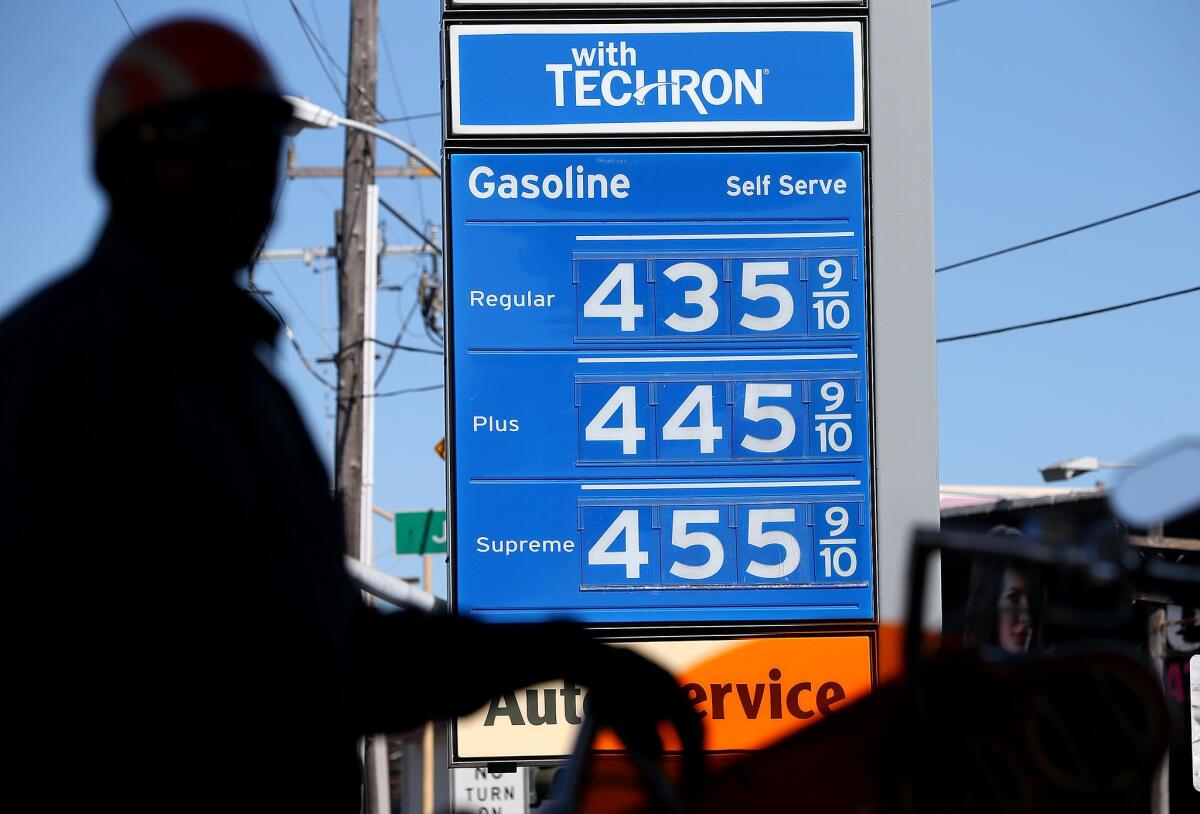Soaking California taxpayers, again

Now that they have filed their income tax returns and written their checks, many Californians are starting to realize that government greed is no laughing matter.
In November, California voters approved Proposition 30, raising the state’s top income tax rate to 13.3%, an increase of more than 29%. The state sales tax now ranges from 7.5% to 10%, the highest statewide rate in the nation.
The tax increases are supposed to raise an additional $6 billion in revenue. But that’s not enough for California politicians. They want more.
The California State Board of Equalization, for example — a government agency that collects sales, fuel, alcohol, tobacco and “use” taxes — recently approved a 9% increase in the excise tax on gasoline, raising it to 39.5 cents a gallon effective July 1. That’s a large increase in a state where businesses and workers depend heavily on their cars and gas prices already average more than $4 a gallon.
There’s more coming from the Legislature. Assembly Bill 1002 would raise the $46 basic annual vehicle registration and renewal fee by $6, supposedly to encourage greater use of bicycles, buses and other transportation modes with smaller carbon footprints than cars.
Senate Bill 700 would require Californians to pay 5 cents for every paper and plastic shopping bag they get at the store, supposedly to raise money for cities and parks.
SB 622 would tax consumers a penny an ounce when they purchase bottled tea, sport drinks, energy drinks and other beverages. That would add nearly $1 to the price of a six-pack of 16-ounce sodas. The excuse for this is to fight childhood obesity and dental disease.
SB 391 would impose an additional $75 state fee on top of existing county charges for recording various legal documents in real estate transactions, such as deeds, liens and so forth. This measure will supposedly support affordable housing.
In the war against gun violence, AB 760 would impose a 5 cents a bullet sales tax on ammunition purchases, on top of the existing sales tax. The supposed purpose of this new tax is to fund expanded mental health services.
Under SB 782, bars and restaurants that serve alcoholic beverages and offer adult entertainment, such as exotic dancing, would get slapped with a $10 a person fun tax — or is it a sin tax? These funds supposedly would be used to prevent sexual assault and provide treatment for victims.
California politicians also are intent on making it more expensive and cumbersome to operate businesses in the Golden State, even as the state’s unemployment rate stands at 9.6%, one of the highest in the nation.
SB 254, the Used Mattress Recovery and Recycling Act, seeks to eliminate the blight of illegally dumped mattresses. It would do so by requiring mattress manufacturers to submit recovery and recycling plans to the state, with the goal of a 75% compliance rate by 2020. The bill would require mattress retailers to pick up the old mattress when they deliver a new one, and would be funded by a “quarterly administrative fee” paid by manufacturers (which, of course, in the real world would undoubtedly be passed on to consumers).
The authors of these proposed measures are unable to predict with any certainty how much revenue they would bring in if they became law. But the proposals make it clear that the hundreds of millions of dollars that California already spends on affordable-housing, mental health and other government programs will never be enough. The politicians will always want more.
Onerous regulations, false promises of fiscal responsibility and the relentless quest for more revenue have become hallmarks of California government.
Lloyd Billingsley is communications counsel for the Independent Institute in Oakland.
More to Read
A cure for the common opinion
Get thought-provoking perspectives with our weekly newsletter.
You may occasionally receive promotional content from the Los Angeles Times.










